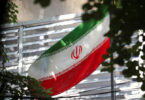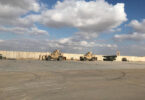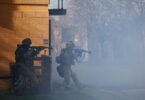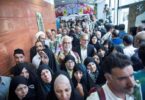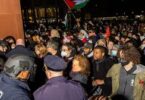NEW DELHI (AFP): A public health emergency has been declared by doctors in Delhi as air quality in the world’s most polluted capital city plunged to levels likened to smoking at least 50 cigarettes in a single day.
Slow winds and colder temperatures have been blamed for a surge in airborne pollutants beyond what instruments in the city could measure with some recording an Air Quality Index (AQI) maximum of 999.
The Indian Medical Association said the country’s capital was suffering a health emergency and called for an upcoming half-marathon to be cancelled to avoid “disastrous health consequences”.
Residents were warned to avoid leaving their homes as smog enveloped streets and landmarks on Tuesday, sparking road, rail and airport delays and renewed calls for Indian state and federal governments to act.
The Delhi chief minister, Arvind Kejriwal, said the city was a “gas chamber” as his government met on Tuesday afternoon to consider a response to the crisis. Primary schools, already asked to keep students indoors, will be shut on Wednesday and possibly longer if the poor conditions persist.
Most dangerous to health are concentrations of fine pollutants smaller than 2.5 micro-metres – tiny enough to evade the body’s natural filters and permeate the blood-brain barrier.
Tests by Greenpeace have shown these fine pollutants – called PM2.5 – can include carcinogenic chemicals such as lead, arsenic, cadmium and mercury. Levels of PM2.5 in Delhi on Tuesday reached 710 micrograms per cubic metre, more than 11 times the World Health Organisation’s safe limit.
“It has terrible effects on every part of your body,” said Dr Arvind Kumar, the chest surgery chairman at Sir Ganga Ram hospital, who compared the 999 AQI level recorded in the RK Puram area to smoking 50 cigarettes in a day. “ICUs are full of pneumonia patients. Lots of my patients are coming with coughs today. They are breathless.
“It can precipitate an acute asthma attack and in the long run it will increase their risk of lung cancer,” he said. Those who work outside – such as the city’s fleet of rickshaw pullers – are hardest hit. Vikas Yadav, an immigrant from Bihar state, said he used to welcome the colder months when the threat from disease-carrying mosquitoes subsides.
Now, “my eyes get a burning sensation”, he said. “I fell sick last year. I don’t know whether it was from the air but I felt breathless and my eyes were itching. Doctors told me not to work early morning during winters.” The smog was unsparing of Delhi’s wealthier set and its community of expatriate workers, many of whom gathered on Tuesday morning on the lawns of the Australian high commission for an annual champagne breakfast to celebrate the Melbourne Cup horse race.
“It was like being in Europe in the middle of winter on a misty morning,” said one reveller, Elizabeth Pennell, a lawyer for an international fund. “It would have been romantic had the mist not been PM2.5.”

